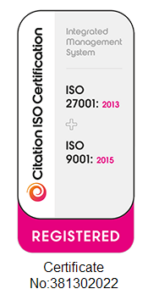Do We Need Another Zoom? Deciding What’s Right for Your Meeting
“Stay committed to your decisions, but stay flexible in your approach.” – Tony Robbins
As the meetings world moved to virtual, Zoom was quick to respond, providing an engaging and easy-to-use platform.
In the interim, though, other platforms have caught up, each trying to replicate one another’s functionality, and the race for market domination is on.
The question about which platform is best for you and the level of functionality you need really depends on your meeting design as well as organisational policy.
As I noted in my blog about the importance of keeping your meetings simple, before you decide what platform you need, ask yourself some questions.
Why are you meeting? What outcomes are you looking for? What do you want your participants to feel and do? What actions are you expecting from your participants when they leave the meeting? Are you seeking to simply transfer information or are you looking for content input from delegates?
Once those questions are answered, you also need to assess additional capabilities. Do you need to engage sponsors? Do you need publications and materials that you would normally have in a physical conference?
Do you need technology add-ons?
Your platform is just part of the process. You also need to consider possible technology wrap arounds, such as the inclusion of microsites to support a meeting series and breakout rooms for separate discussions.
For example, if you are planning a meeting with 12 people who need to present some slides and you need your participants to watch, Zoom is a good, straightforward option. If you need breakouts and you need to engage the audience in certain consensus topics, that could be Zoom with some plug-ins and wrap-around technologies.
Consider a more complex scenario: you want to run a meeting in Russian but you need clients and healthcare experts to be in different rooms, before returning to negotiate while people watch. Plus Russian to English translations so that your global team can observe. That could still be a Zoom meeting.
However, ask yourself why you want delegates to network, how you define networking, why and when you have networking and how you want to do it.
That will determine whether you can use Zoom or whether you will need a more flexible platform with a networking focus.
Until you can answer these questions, there is little point deciding on a platform because you won’t know what is right for the different meeting types that you run. Zoom might be an element of a bigger, more complex platform, because it has streaming and networking built into it, but it may not have the level of sophistication you need for some sessions.
We have created a simple comparison guide to help clients with their decision-making when it comes to selecting the right platform. For example, we compare the capabilities offered by Zoom Meetings versus Zoom Webinars, so you can see at a glance which approach makes most sense for you (please contact us to learn more).
For example, Zoom Meetings are best for smaller audiences where full interaction and collaboration is sought. On the other hand, Zoom Webinars best suit large audiences where the event is more instructional and informative, and attendees are in ‘watch and listen’ mode.
What’s the organisational policy?
There are instances when organisational policy means you can’t use Zoom. We have experienced this with several NHS interactions, for example. That often means Teams is the go-to platform. But there are some important considerations with Teams, such as the fact that the setup can vary from one organisation to another.
In some cases, the software from the organisation sending out the Teams meeting overrides that of external delegates. But if your delegates’ organisation blocks those capabilities they will struggle to access videos and other capabilities.
We have experience with these idiosyncrasies so we can help clients work around such problems. For example, if you know the bulk of your audience is coming from an organisation that blocks software overrides, send the invitations from that company instead of your own.
We also strongly recommend rehearsals with your delegates as well as any faculty, to work out any disconnects and sort out technical hitches before the meeting.
There is no simple answer to the question about a world beyond Zoom. I recommend you start with the end in mind and use that as a guide to determine what will work best for you. Our team is always happy to walk you through the process, so please do get in touch.
Leslie Robertson is the Founder of Open Audience, an audience engagement consultancy that specialises in making life sciences meetings more engaging with more positive, successful outcomes – whether in-person or in the virtual space. The Open Audience team helps to strategise and prepare pre- and post-meeting as well as providing real-time support and guidance during the meeting. Open Audience also offers customisable, multilingual engagement platforms that include interactive polling, surveys, and ideas exchange.

